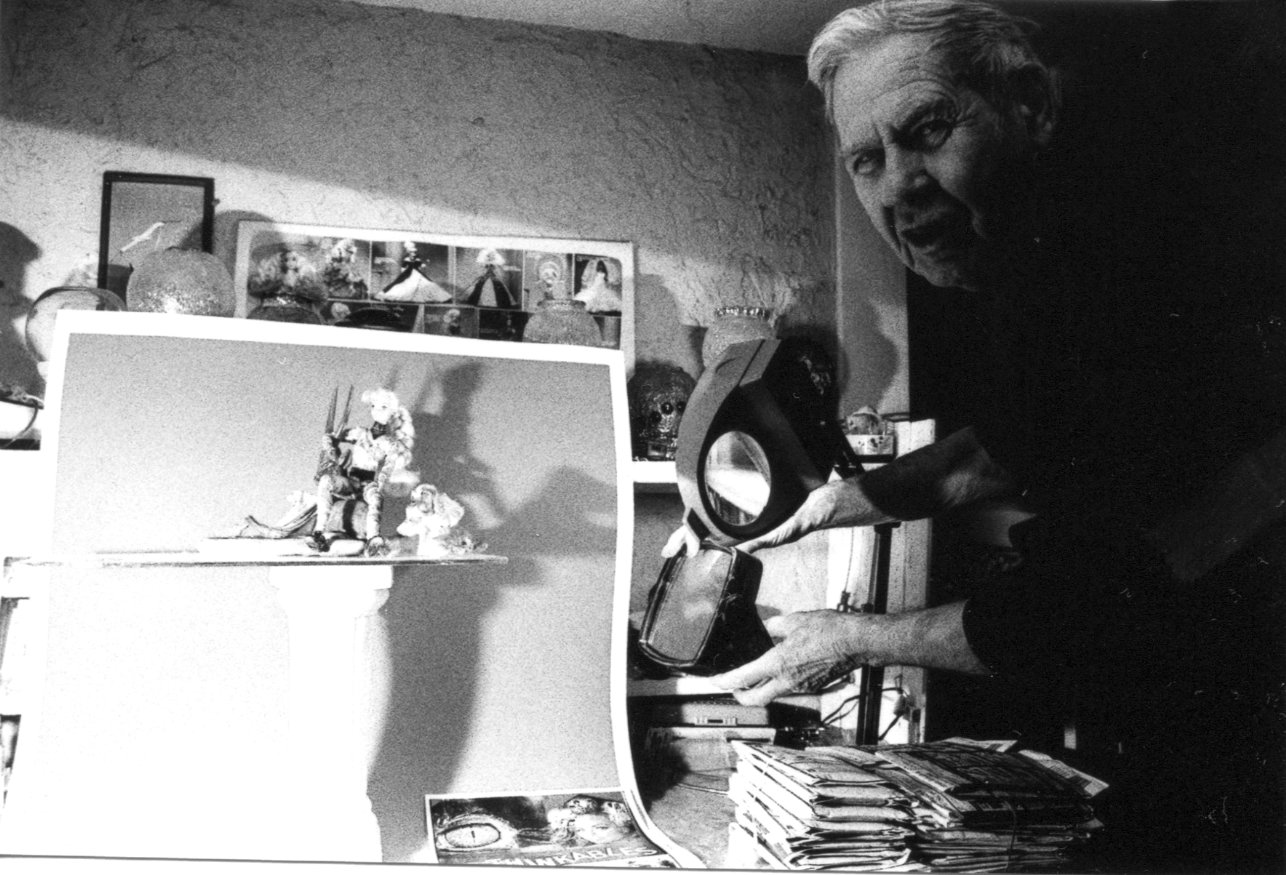
A surprise gift to the viewer, in rather the same manner as was the initial introduction, over a decade ago, a "gift" of outsider artist Al Carbee to documentarian Jeremy Workman by a journalist friend, MAGICAL UNIVERSE is proof plenty that Mr. Workman did not look the proverbial gift horse in the mouth. Instead, he and his girlfriend Astrid befriended Mr. Carbee, and out of this odd, endearing friendship has come one of the best documentaries of the year (hell, the decade, even the new century).
When I tell you that Carbee's claim to fame is creating environments using Barbie dolls which he then photographs, you may need to suppress an urge to run for the hills. Please do. For if you stick with this amazing documentary for even a few minutes, you'll be nailed. As it moves quickly along, it just gets better, deeper, more resonant and profound, more humane, moving and encompassing of so many important things that its title -- Magical Universe -- will not only refer to the world of Carbee and his Barbies but to the state you'll find yourself in by movie's end.
The filmmaker allows us to see a lot of Carbee's output -- from those Barbie creations to early work that shows the man to have been a terrific, if somewhat more conventional, artist (he loved the work of and wanted to become another Norman Rockwell).
Notes a New York gallery owner, a tad mystified, as Workman begins fishing for a possible showing of Carbee's work, "It's clear that he wants to offer pleasure to the viewer..."
"He's an eccentric," notes another person, who knows Carbee. "But he's a genuine eccentric!" I think you'll agree. Especially when the fellow get around to showing, telling, and writing copious letters and making long and bizarre videotapes sent to Jeremy and Astrid about the alternate universe he imagines. Or maybe lives in.
The odd and increasingly appealing thing about Carbee is that, although under other circumstances he might seem creepy and way too off-kilter, because the filmmaker care so much about him ("He seems like he could be my grandfather," Astrid notes), we come to feel the same thing.
Workman's film is quite homemade. That accounts for much of the feeling we get of honesty and odd beauty. If at first it seems all over the place, slowly, the more we learn, the more it all comes together. We've seen over the years a lot of docs about artists and art -- this year two particularly good ones have been Art and Craft and Fifi Howls from Happiness -- but few I think have taken us this far into the mind, the universe of the artist as well as Workman's does. His film, like its subject, is an original.
Mr. Carbee understands that he seems strange to most people. "War is stupid," he notes at one point. "Does that sound weird?" But as someone else points out, regarding this odd fellow: "Craziness is only what you expect it to be."
I don't want to go into all that happens in the course of the film, for you deserve to experience it first-hand. There is a kind of crowning achievement here, however, and when Carbee is asked if this has made him happy, he tells us: "It frees me. It makes me part of the world of reality."
You'll have to see the movie to understand the ramifications of what the man's words mean. Can art accomplish anything -- other than what it achieves for the artist -- until it is seen and appreciated? The photographs of Vivian Maier make the case for the negative answer, just as Carbee's story underscores the positive aspects of sharing.
Magical Universe, quietly stunning and endlessly thought-provoking, calls to mind the purpose(s) of art and its worth -- to the artist and the viewer -- along with what it means to be creative, and how art can both cordon off the artist and make life open up. Of course, one man's art may be another man's hogwash. The film understands this, too, and so, I think did Carbee, whose story Workman has brought to such immense life -- and in the process, produced some art of his own.
The movie -- from Sundance Selects -- opens this Friday, October 31, in New York City at the IFC Center, and will hit Los Angeles at the wonderful little Arena Cinema the following Friday, November 7. Elsewhere? Not sure, but you'll certainly be able to see it on DVD or some streaming source, and eventually, I imagine, via the Sundance Now Doc Club.

















No comments:
Post a Comment